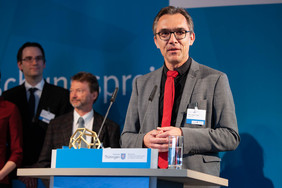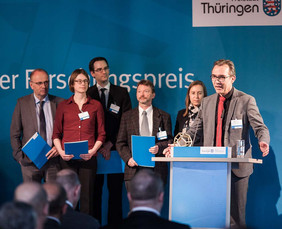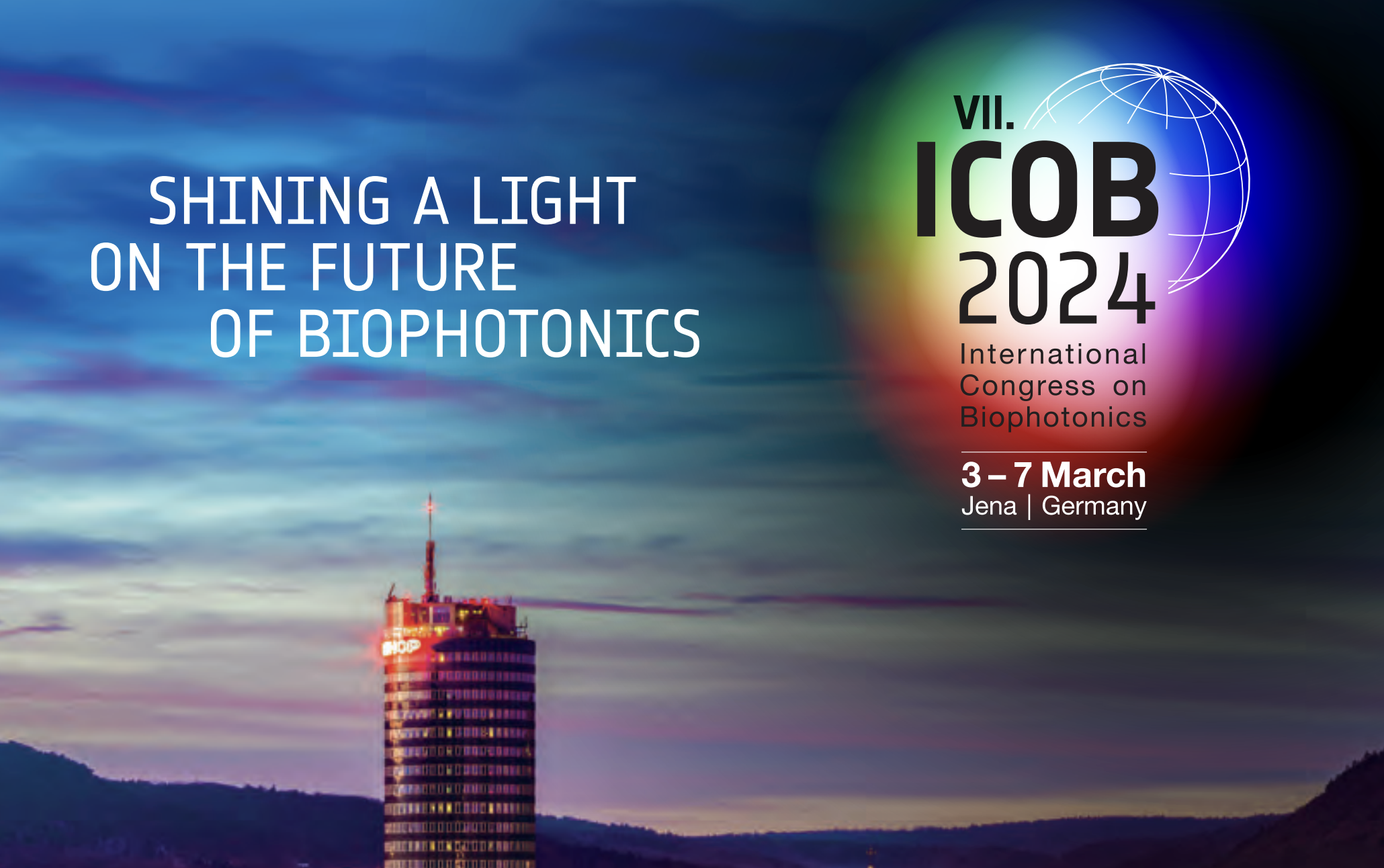Leibniz IPHT wins Thuringian Research Prize 2019: Milestone in the fight against resistant germs

The Thuringian Research Prize 2019 goes to Jena: A research team from Leibniz IPHT, Friedrich Schiller University and Jena University Hospital was awarded the “Applied Research” prize on April 8, 2019 for a rapid test for the detection of infectious pathogens and their antibiotic resistance. With the laser-based method, bacteria and their resistances can be diagnosed directly: The result is available in 3 hours, for which physicians have to wait up to 3 days with current methods. The test enables physicians to precisely treat infections and could thus make a decisive contribution in the fight against resistant germs.
More and more people are becoming infected with germs against which available antibiotics are no longer effective. Such resistant germs endanger people all over the world. Because they could lead to diseases that can be easily treated today again posing a deadly danger in the near future and seemingly simple routine interventions becoming an incalculable risk. The cause is a vicious cycle: Due to the lack of rapid diagnostic procedures, patients with life-threatening infections are initially treated with broad-spectrum or reserve antibiotics under time pressure. As a result, resistance to reserve antibiotics is on the increase. These substances are becoming increasingly ineffective – and the resistance situation continues to worsen.
A Chip that can Save Lives
A team of scientists from Leibniz IPHT, Friedrich Schiller University and Jena University Hospital has researched a solution with the potential to revolutionize infection diagnostics: a laser-based rapid test that provides doctors with the decisive information they need to start optimal treatment in the shortest possible time. With the RAMANBIOASSAYTM bacteria and resistances can be diagnosed within 3 hours. With currently used microbiological methods, physicians have to wait up to 3 days for the result.
The alternative of the Jena researchers is fast, inexpensive and universally applicable: a chip that replaces a laboratory. A few drops of a patient sample are enough for doctors to easily read pathogens and antibiotic resistance.
“A potentially life-saving development. With potential both for the individual patient and for the health system,” says Prof. Michael Bauer, head of the Clinic for Anaesthesiology and Intensive Care Medicine at the University Hospital of Jena: “It could help free us from the plight of resistance.
Possible way out of the resistance crisis
The research team at Leibniz-IPHT is already working on a portable system. “It is our incentive to now take the next steps and provide doctors with a tool that they can use where it is most needed: in patient-oriented diagnostics,” says Prof. Jürgen Popp, scientific director of Leibniz-IPHT and the Institute of Physical Chemistry at Friedrich Schiller University Jena. For example, the rapid test could help doctors in rural areas where there is no clinic nearby to make a precise diagnosis and give their patients the right treatment. And in the case of life-threatening patients in the clinic, for whom every minute counts, it saves the time-consuming transport of samples to the laboratory.
“We are pleased to see that we can provide a solution for an urgent medical need with spectroscopic techniques,” adds Prof. Ute Neugebauer from Leibniz-IPHT, who conducts research at the Integrated Research and Treatment Centre for Sepsis and Sepsis Sequences at Jena University Hospital.
For the chip that can save lives, the Jena research team was awarded the 3rd prize of the Berthold Leibinger Innovation Prize in 2018. It has also led to the foundation of Biophotonics Diagnostics. The potential is great. Patients are helped quickly. The further spread of resistance is contained by precisely tailored therapies and considerable costs are saved in the health systems.
Since 1995, the Thuringian Research Prize has been awarded annually by the state of Thuringia to outstanding achievements in research at universities and non-university research institutions. The prize is awarded for basic and applied research with a total prize money of 50,000 euros. The award is decided by a jury of experienced scientists from all over Germany.
Contact
Related News
Third party cookies & scripts
This site uses cookies. For optimal performance, smooth social media and promotional use, it is recommended that you agree to third party cookies and scripts. This may involve sharing information about your use of the third-party social media, advertising and analytics website.
For more information, see privacy policy and imprint.
Which cookies & scripts and the associated processing of your personal data do you agree with?
You can change your preferences anytime by visiting privacy policy.




